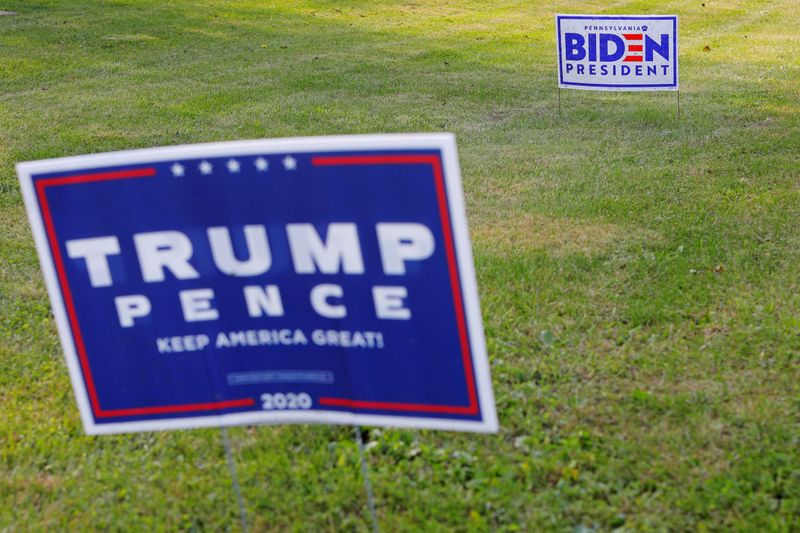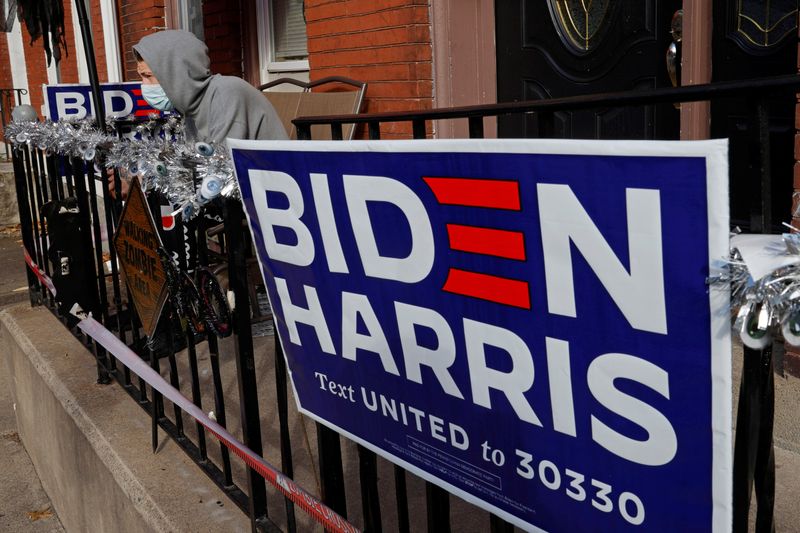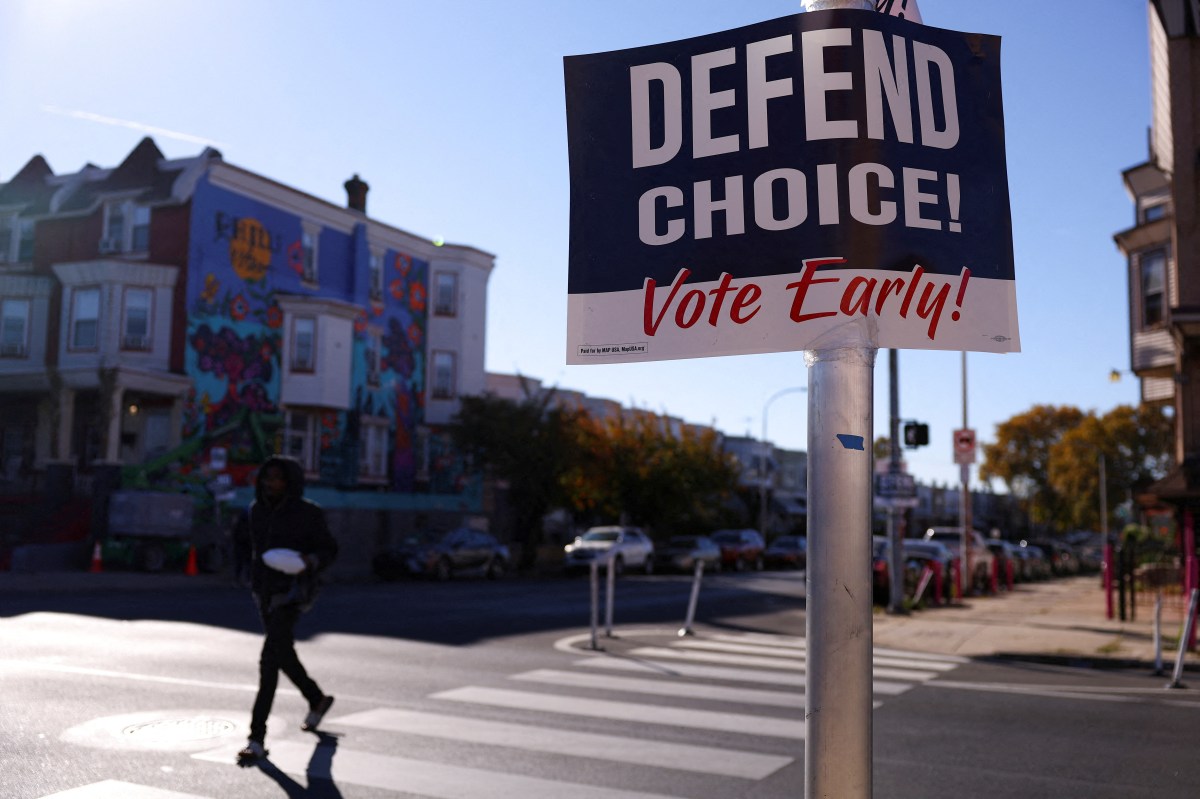WASHINGTON (Reuters) – Both sides in the U.S. presidential election are clashing in court over rules and procedures ahead of the Nov. 3 vote, as the coronavirus pandemic prompts hundreds of lawsuits over how people can cast their ballot.
President Donald Trump’s re-election campaign and the Republican National Committee have scored important victories, including a ruling in the battleground state of Florida that curtails the voting rights of hundreds of thousands of former felons. Democrats have also notched several big wins, from decisions on when mail-in ballots can be accepted to rulings rejecting Trump’s repeated claims that mail-in voting will lead to widespread fraud.
TRUMP WINS
— FLORIDA RESTRICTS EX-FELONS’ RIGHT TO VOTE
A federal appeals court ruled in September that Florida can require felons to pay fines, restitution and legal fees they owe before they regain their right to vote.
By a 6-4 vote, the U.S. 11th Circuit Court of Appeals reversed a lower court ruling that the measure amounted to an unconstitutional poll tax. Five of the six judges in the majority were appointed by Trump.
Ex-felons in Florida are more likely to register as Democrats, according to an analysis published this month by the Tampa Bay Times, Miami Herald and ProPublica.
Nearly 900,000 Floridians with felony convictions will be unable to vote in the election because of the decision, according to an Oct. 14 study by the Sentencing Project, a criminal justice reform group.
— FIGHT OVER ABSENTEE BALLOTS IN WISCONSIN
Wisconsin election officials cannot count absentee ballots that arrive after the Nov. 3 election, a federal appeals court ruled on Oct. 8.
Democrats had argued that ballots postmarked by Election Day that arrive up to six days later should be tallied, saying such a policy would protect the right to vote amid a surge in mail-in ballots because of the coronavirus pandemic.
The U.S. 7th Circuit Court of Appeals held that it was too close to Election Day to make significant modifications to the voting process.
In a scathing dissent, one judge denounced the decision as a “travesty” and said thousands of people would lose their right to vote.
An appeal to the U.S. Supreme Court is pending.
— MICHIGAN COUNTING DEADLINE
A Michigan appeals court ruled on Oct. 16 that ballots received after 8 p.m. on Nov. 3 cannot be counted, reversing a ruling by a state court judge in Detroit and changing the battleground state’s voting rules just over two weeks before the election.
The judge in Detroit had said Michigan voters should have their ballots counted for up to 14 days following Nov. 3., so long as they were postmarked by Nov. 2.
— TEXAS MAIL-IN BALLOT BATTLE
On Oct. 8 the Texas Supreme Court ruled that officials in the state’s most populous county, a Democratic stronghold that includes Houston, cannot send out unsolicited applications for mail-in ballots to its 2.4 million registered voters.
Unlike other states, Texas limits mail-in voting to those who are 65 and older, cite a disability or illness, are in jail but otherwise eligible, or are outside the county where they are registered.
The decision was a win for Republican party officials, who said sending mail-in ballot applications to everyone in Harris County, the third most-populous county in the United States, would cause confusion and lead to voter fraud.
BIDEN WINS
— PENNSYLVANIA JUDGE REJECTS VOTER FRAUD CLAIMS
Drop boxes have become a partisan flash point, with Democrats promoting them as a safe option for voters unnerved by the COVID-19 pandemic and U.S. Postal Service delivery problems. Republican officials and Trump’s campaign have argued without evidence that the boxes could enable voting fraud.
On Oct. 10, U.S. District Judge Nicholas Ranjan in Pittsburgh, a Trump appointee, rejected a bid by the Trump campaign and Republican Party to limit the use of drop boxes in Pennsylvania.
Ranjan wrote that the plaintiffs failed to prove a risk of voter fraud. “At most, they have pieced together a sequence of uncertain assumptions.”
An appeal is pending in the U.S. Supreme Court.
— LAWSUIT OVER MAIL-IN DEADLINES
The Pennsylvania Supreme Court ruled on Sept. 17 that officials in the closely contested state can accept mail-in ballots three days after the Nov. 3 election, so long as they were postmarked by Election Day.
Republicans, who are asking the Supreme Court to review that decision, did prevail on one key issue. Interpreting a state law, the court said officials must throw out “naked ballots” — ballots that arrive without inner “secrecy envelopes.”
Republicans argued the secrecy sleeves help deter fraud. Democrats have warned the ruling could lead to more than 100,000 votes being thrown out.
— TEXAS BALLOT DROP-OFF SITES
Democrats scored a win in Texas on Oct. 15 when a judge lifted an order by Republican Governor Greg Abbott limiting counties to a single location for mail ballot drop off sites. That order is on hold while it is being appealed.
State court judge Tim Sulak, who sits in Austin, said Abbott’s order would “increase risks of exposure to COVID-19 infections” and “substantially burden voters’ constitutionally protected rights to vote.”
Sulak’s ruling is being reviewed by an appeals court.
























